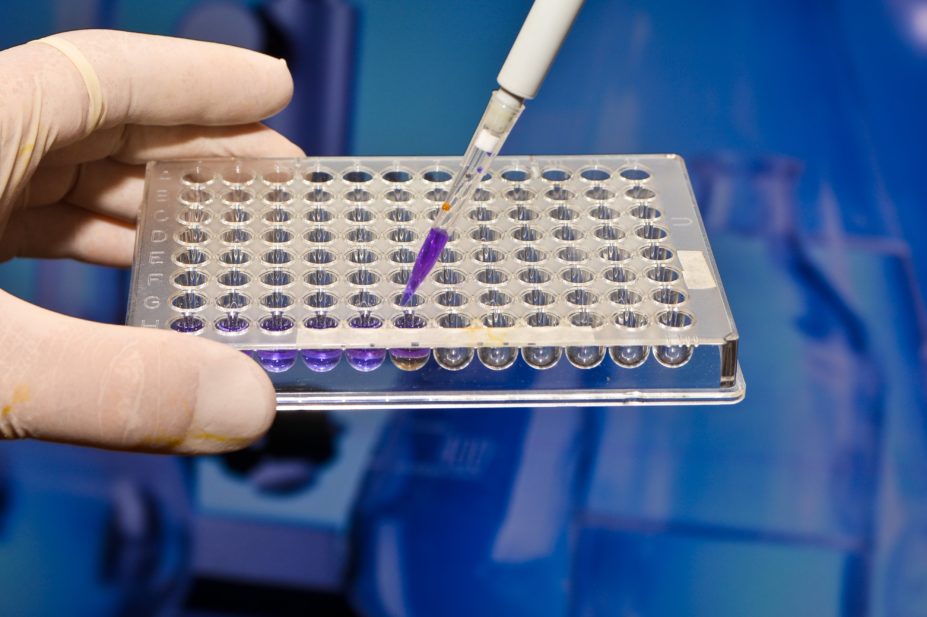
Shutterstock.com
Genomics is becoming an important part of the healthcare agenda. The NHS genomic medicine service (GMS) for England was launched in October 2018 to ensure equitable access to genetic and genomic testing across the country. The aim is to integrate genomic medicine into routine NHS care by 2025.
What has happened so far?
In March 2017, the NHS England board set out plans to develop a national GMS to build on existing NHS clinical genetic services and the NHS contribution to the 100,000 Genomes Project. Recruitment was completed in December 2018, although research and analysis is still ongoing.
The NHS GMS, which was launched in October 2018 and rolled out across England from April 2020, incorporates seven genomic laboratory hubs, which are responsible for delivering regional genomic testing services in accordance with the national genomic test directory. The laboratories perform genomic testing, analysis and interpretation, and feed these back to clinicians.
Alongside these seven laboratory hubs, seven NHS Genomic Medicine Service Alliances (GMSAs) have also been established.
What is the aim of the genomic medicine service?
The NHS medicines budget is currently £17bn per year and rising. However, 50% of medicines are not taken as prescribed, resulting in effectiveness issues; 1 in 15 hospital admissions occur owing to adverse drug reactions (ADRs) to prescribed drugs; and the typical drug efficacy is generally 30–50%.
Up until now, there has generally been a ‘one-size-fits-all’ approach to medicines. However, genomics can be used to improve diagnosis, reduce the risk of adverse events and enable the personalisation of treatments to ensure that patients have the best possible outcomes from their medicines.
The GMS aims to ensure equity of access for all patients and will deliver a single national testing directory, covering use of all technologies from single-gene to whole-genome sequencing. There are also plans to build a national database to help aid research and clinical trials.
A genomics programme board, created within NHS England and Improvement (NHSE&I), will oversee national planning, contracting mechanisms and reimbursement to the GMS.
What do the Genomic Medicine Service Alliances do?
The role of the GMSAs is to provide multidisciplinary clinical leadership to oversee and embed genomic medicine into mainstream clinical care.
Each GMSA facilitates collaborations across the area it covers, ensuring NHS staff have the understanding and confidence to utilise genomics effectively and working with patients and the public to help them to realise the benefits of genomics.
The GMSAs are each taking the lead on national transformation projects in conjunction with NHSE/I, with DPYD gene testing the first to be rolled out across the country.
The 2021/2022 projects are:
- Optimising and improving the clinical effectiveness of DPYD gene testing for patients with cancer receiving fluoropyrimidine chemotherapy;
- Aiming to standardise the equitable implementation of DPYD pharmacogenetic testing by identifying barriers and data collection;
- Improving clinical effectiveness of DPYD pharmacogenomic testing by characterising additional relevant DPYD variants and optimising use of therapeutic drug monitoring;
- Embedding implementation of familial hypercholesterolemia (FH) services in primary care:
- Aiming to support mainstreaming of genomic medicine for FH in primary care to enable teams to increase the detection of FH;
- Development of FH patient pathways for primary care to either directly order tests or provide referrals to secondary care for genomic testing;
- Establishment of a primary care case-finding approach for people who are at high risk of FH;
- Improving the identification and treatment of monogenic diabetes;
- Aiming to reduce unwarranted variation in monogenic diabetes so that rates of case identification across England meet the estimated prevalence of 8 confirmed cases per 100,000 population;
- Reviewing equity of access to genomic testing, supporting the establishment of testing pathways and developing new models of care for easy access to testing;
- Engagement to be expanded to pharmacists and other relevant healthcare professionals, including supporting access to training;
- Delivery of a comprehensive service for the detection of Lynch syndrome
- Sudden cardiac death – testing for inherited conditions
- Pathology transformation
- Embedding genomics into the nursing and midwifery workforce
As well as these seven projects that will be implemented nationally, genomics projects are also being carried out on a local level.
Alongside these projects, the GMSAs will review equity of access for patients and set update the national genomics test directory to ensure that it is the same for patients across England.
Although the GMSAs are formed in England, there are strong partnerships with Scotland, Wales and Northern Ireland to enable the sharing of learning, establish best practice and ensure equity of access to genomic testing and personalised treatment.
What is the national genomic test directory?
Operational from October 2018, the national genomic test directory specifies which genomic tests are commissioned by NHS England, the technology by which they are available, and the patients who are eligible to access a test.
The Genomics Clinical Reference Group (CRG), set up by NHSE&I, will oversee an annual evidence-based process to ensure that the directory is kept up to date with current testing and technologies.
The 2019/2020 test directory covers cancer, and rare and inherited diseases, but the scope of the directory is likely to expand in certain areas, such as pharmacogenomics, which looks at how an individual’s genes influence a particular biological process that mediates the effects of a medicine.
In light of this, the Genomics CRG is supported by three test evaluation working groups for rare and inherited disease, cancer and pharmacogenomics. Their role will be to provide recommendations to the Genomics CRG, review applications for updates to the national genomic test directory and ensure that it is kept in line with current evidence.
The Pharmacogenomics Test Evaluation Working Group is due to be established during the first quarter of 2022/2023. This group will review current systems and infrastructure to see how pharmacogenomic testing can be integrated to reduce harmful prescribing.
Can whole-genome sequencing now be ordered as part of routine clinical care across England?
Whole-genome sequencing is already being offered to specified patient groups in England and Wales; for example, adults and children with certain cancers or indications suggesting an undiagnosed rare disease.
For patients who agree to have their whole genome sequenced, their samples (blood/saliva/tissue etc.) will be stored securely [by?] and their data will be added to the National Genomic Research Library, a secure national database of de-identified genomic and health data managed by Genomics England. Approved researchers can use the samples and data to study diseases and look for new treatments.
In the NHS Long Term Plan, published in 2019, NHSE set out ambitions to be the first national healthcare system to offer whole-genome sequencing as part of routine care and to sequence 500,000 whole genomes by 2023/2024.
How are pharmacists involved in the genomic medicine service?
Pharmacists’ medicines expertise is central to the NHS Genomic Medicine Service. They may be required to help explain to patients how their pharmacogenomic results are likely to impact their medicines and discuss any non-genetic factors that may influence drug responses. Pharmacists may also need to liaise with a patient’s doctor in case any of their medications need to change and could be required to help with alerting on significant gene–drug interactions for future medicines prescribed for the patient.
Each GMSA has appointed a chief pharmacist (or senior responsible officer) to provide strategic and operational delivery of services, and a consultant pharmacist to provide clinical leadership, expert clinical practice and knowledge.
In addition, a national genomics pharmacy advisory group has been established to lead on implementation of personalised medicine and embedding genomics into pharmacy practice. The group brings together the GMSA chief and consultant pharmacists, NHS England, Health Education England and pharmacy representatives from Scotland, Wales and Northern Ireland.
How can pharmacists learn more about genomics?
There are a variety of educational resources available to help pharmacists, and other healthcare professionals, learn more about genomics:
- The Health Education England Genomics Education Programme at www.genomicseducation.hee.nhs.uk. These range from online courses, videos and podcasts through to courses;
- The Centre for Pharmacy Postgraduate Education offers an ‘Introduction to genomics in pharmacy’. This learning programme introduces genomics and pharmacogenomics, highlighting the opportunities they can bring to the provision of person-centred care.
- The Royal Pharmaceutical Society offers ‘An Introduction to Pharmacogenomics’ webinar to support understanding of the basic principles and underlying use of genetic information to help inform prescribing, available here.
How it works in Scotland and Wales
Scotland
The structure for genomic medicine services in Scotland is currently going through a transition. The launch of the Scottish Genomics Strategic Network was announced by Humza Yousaf, the cabinet secretary for health and social care, on 30 May 2022.
This network will provide strategic leadership and direction across all areas of genomic medicine within Scotland and, under direction of a steering group and oversight board, will comprise several working groups tasked with taking forward specific pieces of work.
Pharmacy will have an important role in several of these and pharmacy representation is being ensured from appropriate representatives across Scotland.
A survey was circulated in Scotland to invite those with an interest in genomics to express their interest in being part of the network. Further announcements on membership of the network and corresponding facets is expected imminently.
In addition, the Living Laboratory for Precision Medicine programme at the University of Glasgow aims to promote wider adoption of precision medicine in NHS Scotland by involving industry, health services and academia.
The project will deliver a clinical decision support system that will use information from a patient’s genetic characteristics to inform clinicians as to how that individual may respond to a medicine, either individually or in conjunction with other medicines. The system will be the first of its kind to be used in healthcare and will create a roadmap for the accelerated adoption of precision medicine innovation into the NHS.
Wales
The Genomics for Precision Medicine Strategy, launched by the Welsh government in July 2017, set out plans to create a “sustainable and internationally competitive environment for genetics and genomics to improve health and healthcare provision for the people of Wales”.
Genomics Partnership Wales was formed in 2018 with key stakeholder organisations from across Wales to establish a united approach to genomics in Wales and ensure that the ambitions and commitments laid out in the Genomics Strategy would be fulfilled.
Five years on from the launch of the strategy, work is progressing in several areas, including workforce, training and patient consent. Significant progress has also been made in aligning clinical and laboratory services under one All Wales Medical Genomics Service.
The next phase is the development of the ‘Genomics Delivery Plan for Wales’, which will align the Welsh programme with the ambitions outlined in the policy paper ‘Genome UK’, published by the UK government in September 2020. The Welsh plan will be published in summer 2022.
In addition, the National Pharmacogenomics Group, led by Dyfrig Hughes, professor of pharmacoeconomics at Bangor University, aims to ensure delivery of a national, standardised and coordinated pharmacogenomic testing approach in NHS Wales.
In early 2020, Wales was the first in the UK to routinely provide all cancer patients being treated with certain types of chemotherapy DPYD screening to identify their risk of severe side effects and help prevent this occurring.
- This article was amended on 19 July 2022 to include details requested by NHS England


